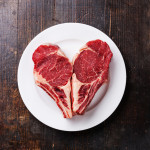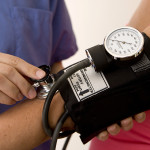By David Blyweiss, M.D., Advanced Natural Wellness
July 15, 2015
- Do all heart attacks cause chest pain?
- Know the difference between a heart attack and stroke
- Best way to increase your chances of survival
If you watch television, you probably think you know what a heart attack looks and feels like. TV shows and movies make it clear that there’s a lot of chest pain. Sometimes the character having the heart attack even falls to the ground.
But the truth of the matter is this: No two heart attacks are the same. And the majority of them aren’t Hollywood worthy.
If you’re a male, you’re more likely to have chest pain than women. But that doesn’t mean all men have chest pain. A small number – about one out of ten – don’t. And if you’re a woman, it’s important to know that around a third of all women don’t have any chest pains, either.
So what does a heart attack feel like when you don’t have chest pain or pressure?
Both men and women may develop sweating, fatigue or nausea. You might experience lower chest discomfort that feels more like heartburn. Shortness of breath and lightheadedness can also occur. And it wouldn’t be uncommon to develop arm, back, neck or jaw pain.
Now, it’s essential that you don’t get any of these symptoms mixed up with those of a stroke.
When a stroke occurs, you’re more likely to develop numbness or weakness in one of your arms rather than pain. And it’s not just the arm that may become weak and numb. You might also feel it in the face, a leg or along an entire side of your body.
And unlike a heart attack that may provoke lightheadedness, strokes are more likely to make you feel dizzy, confused and have trouble speaking or understanding words. Blurred vision, loss of coordination and severe headache are also common in a stroke.
The general rule of thumb if you think someone is having a stroke is the FAST acronym. This stands for Facial drooping, Arm weakness, Speech difficulty, Time to call 911.
The World's Quickest Solution for Ending Prostate and Urinary Misery
This has recently been revealed to be one of the only real breakthroughs in prostate health.
The seeds of a strange fruit (sometimes called "Chinese Apples") hold powerful phytonutrients that are a revolution in prostate health.
In fact, UCLA and Veterans Administration research have now proved this to be true.
Not only that, but it may be the worlds quickest solution for ending prostate misery.
Simply stated, these phytonutrients represent a huge step beyond beta sitosterol, saw palmetto, and other phytosterols alone.
Simply click HERE if you want to have fast prostate relief...restful, uninterrupted sleep...no more constant "urges to go"...enhanced virility...and optimal prostate support for life.
It’s urgent to call 911 for a heart attack, too.
But if someone is suffering from a heart attack, there are things that can be done while you’re waiting for the paramedics to arrive.
One of the first is to swallow an aspirin. This will help prevent dangerous clotting. But it’s not a guarantee for survival, so keep a close eye on the person having the attack.
If the person stops breathing, they could be in sudden cardiac arrest. Some gyms, offices and public buildings have automated external defibrillators (AEDs) on hand. This is a great idea to suggest at the building where you work.
These machines can check a person’s heart rhythm and determine if it requires a shock. If one is available, read the instructions and follow the voice prompts.
If you don’t have access to an AED or if it fails to resuscitate the patient, stay on the line with 911 and have them talk you through the steps for CPR.
The more quickly you can recognize the problem and get that call made to 911, the greater the chances you or someone you know have for survival.
And by the way, don’t try to drive yourself to the hospital…and don’t ask anyone else to drive you. Getting the medics to you as quickly as possible so they can immediately start treatment is always the best solution.
Sources:
DeVon HA, et al. Symptoms across the continuum of acute coronary syndromes: differences between women and men. Am J Crit Care. 2008 Jan;17(1):14-24.
Khan NA, et al. Sex differences in acute coronary syndrome symptom presentation in young patients. JAMA Intern Med. 2013 Nov 11;173(20):1863-71






